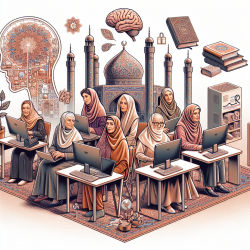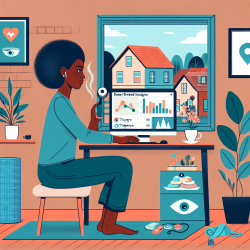As practitioners in the field of online therapy, it is crucial to continuously expand our understanding of the diverse experiences and challenges faced by our clients. One area that is often overlooked is the sexual and emotional lives of older women, particularly those from culturally conservative backgrounds. The research article "Older Iranian Muslim women’s experiences of sex and sexuality: A biographical approach" by Amini and McCormack provides invaluable insights that can enhance our practice.
This study explores the complex interplay of cultural, religious, and personal factors that shape the sexual experiences of older Iranian Muslim women. By examining the pivotal moments related to sexuality in their lives, the researchers reveal how these women navigate the restrictive norms imposed by a patriarchal society.
Key Findings from the Research
The study conducted life history interviews with 30 older Muslim women living in Tehran and Karaj. The biographical life course approach adopted in this research highlights several critical themes:
- Puberty: The onset of puberty marks a significant transition in the lives of these women. Cultural meanings and symbols of sexuality emerge during this period, often associated with shame and stigma.
- First Sex at Marriage: The experience of first sex within the confines of marriage is fraught with societal expectations and personal anxieties. The patriarchal and religious gender order significantly influences these experiences.
- Menopause: Menopause is another pivotal moment where the intersection of aging, gender, and sexuality becomes evident. The study reveals how these women negotiate their sexual identities and challenge societal norms during this stage.
Implications for Practitioners
Understanding the experiences of older Iranian Muslim women can help practitioners develop more culturally sensitive and effective therapeutic approaches. Here are some practical steps that can be taken:
- Enhance Cultural Competence: Familiarize yourself with the cultural and religious contexts that shape the lives of your clients. This understanding will enable you to provide more empathetic and relevant support.
- Encourage Open Communication: Create a safe space for clients to discuss their sexual and emotional experiences without fear of judgment. This openness can help break down the barriers of shame and stigma.
- Incorporate Biographical Methods: Utilize biographical approaches to explore the life histories of your clients. This method can provide deeper insights into their experiences and help tailor therapeutic interventions.
- Promote Agency and Empowerment: Encourage clients to assert their agency and challenge restrictive norms. Empowering them to make informed decisions about their sexual and emotional lives can lead to more positive outcomes.
Encouraging Further Research
While the study by Amini and McCormack provides a valuable starting point, there is still much to learn about the sexual and emotional lives of older women from diverse cultural backgrounds. Practitioners are encouraged to engage in further research to expand the knowledge base and improve therapeutic practices.
Here are some areas for future research:
- Comparative studies on the sexual experiences of older women from different cultural and religious backgrounds.
- Longitudinal studies that track changes in sexual attitudes and behaviors over time.
- Research on the impact of online therapy on the sexual and emotional well-being of older women.
By delving deeper into these areas, practitioners can develop more comprehensive and effective therapeutic approaches that address the unique needs of their clients.
To read the original research paper, please follow this link: Older Iranian Muslim women’s experiences of sex and sexuality: A biographical approach.










